
Eye Pictures, Pretty Pictures, Blue Color Meaning, Color Blue, That Old Black Magic, Turkish Eye
THE HISTORY AND THE MEANING OF THE TURKISH EVIL EYE Upon landing in Istanbul, or even before arrival, one of the first things to catch your eyes is an evil eye bead.

meaning behind evil eye jewelry Basil & Co.
Eye beads The Turkish boncuk (sometimes called a göz boncuğu or eye bead) is a glass bead characterized by a blue glass field with a blue or black dot superimposed on a white or yellow center. Historically old, the blue bead has gained importance as an item of popular culture in Modern Turkey.
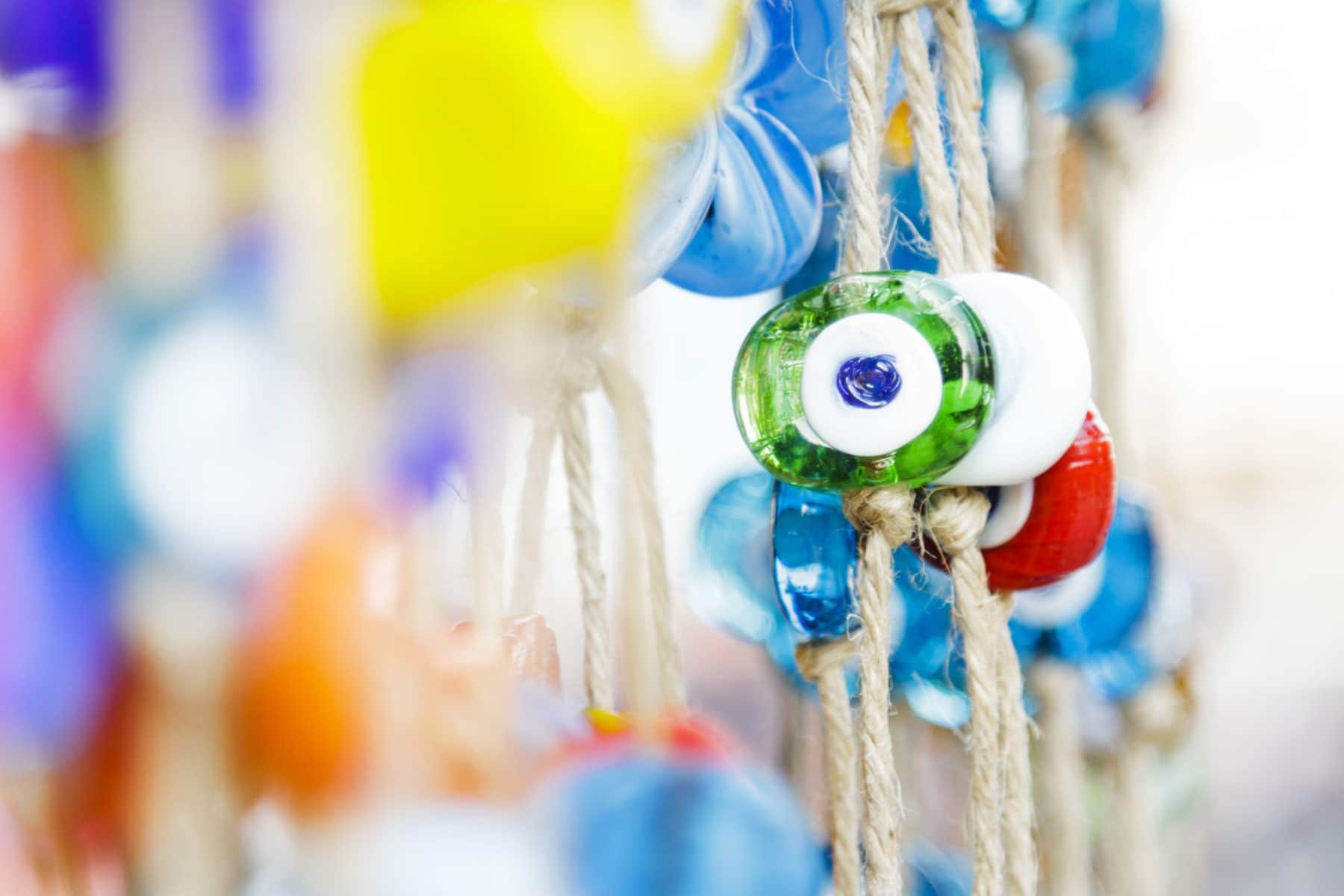
The History and the Meaning of the Turkish Evil Eye
The meaning of the Turkish Blue "Evil" Eye, also known as The Nazar Boncuk. 🧿 Its history is said to date back over 5000 years ago and is characterized by a deep blue exterior, white or yellow sclera, lighter blue iris, and black pupil. This depicts the ever-watchful eye.
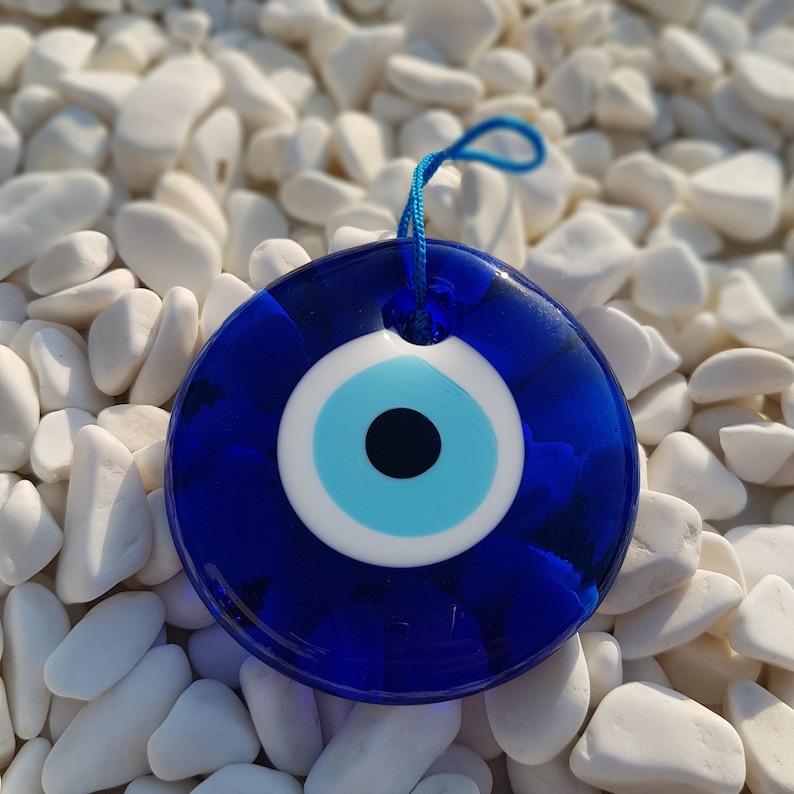
Blue Evil Eye 7 cm Wall Hanging Nazar Boncuk Turkish Evil Etsy
Turkish evil eye benefits Turkish evil eye benefits. Plutarch, the Greek philosopher, believes that certain people have great power in magic. Continuing his words, he points to a group of people south of the Black Sea and says these sorcerers have blue eyes. The use of the eye symbol in the Turkish devil's eye is because eyes cause all evil.

The Vantage Point Charmed!
The Nazar Boncuk (Nazar Boncuğu) - The blue evil eye in Turkey. From your first moments in Turkey, you will certainly notice these blue pendants, eye-shaped, hanging everywhere, and sold in every souvenir shop. This object, handcrafted from glass paste, is called the "Nazar Boncuk". The word "Nazar" comes from the Arabic language.
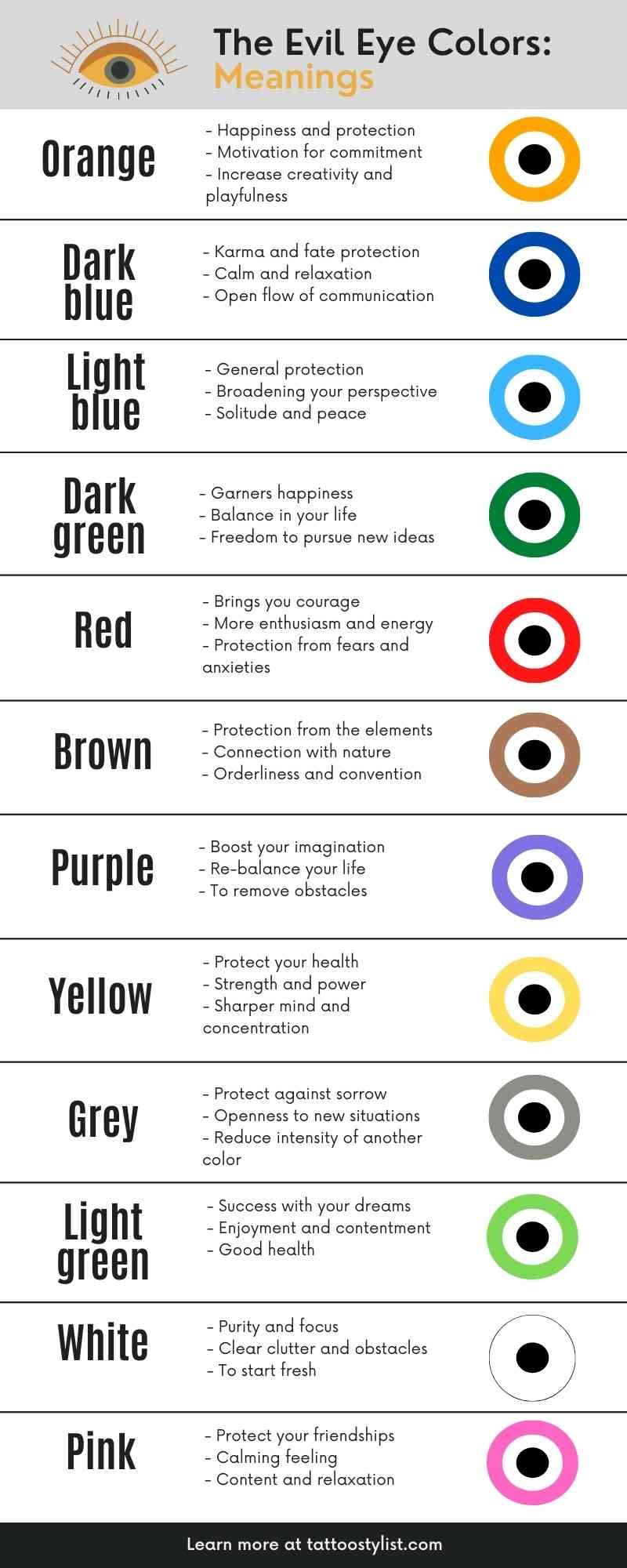
Update 76+ protection tattoos and meanings super hot esthdonghoadian
Though often dubbed as 'the evil eye', the ocular amulet is actually the charm meant to ward off the true evil eye: a curse transmitted through a malicious glare, usually one inspired by.

ビーズの Famous Turkish Evil Eye 10 × 14ミリメートルhamsa Fatima White Motherのpearl Shells Jewelry Making
The Turkish eye symbol, also known as the Evil Eye or Nazar, is a powerful talisman believed to ward off negativity, bad luck, and malicious intent. In Turkish culture, the Evil Eye is a prevalent superstition that dates back thousands of years.
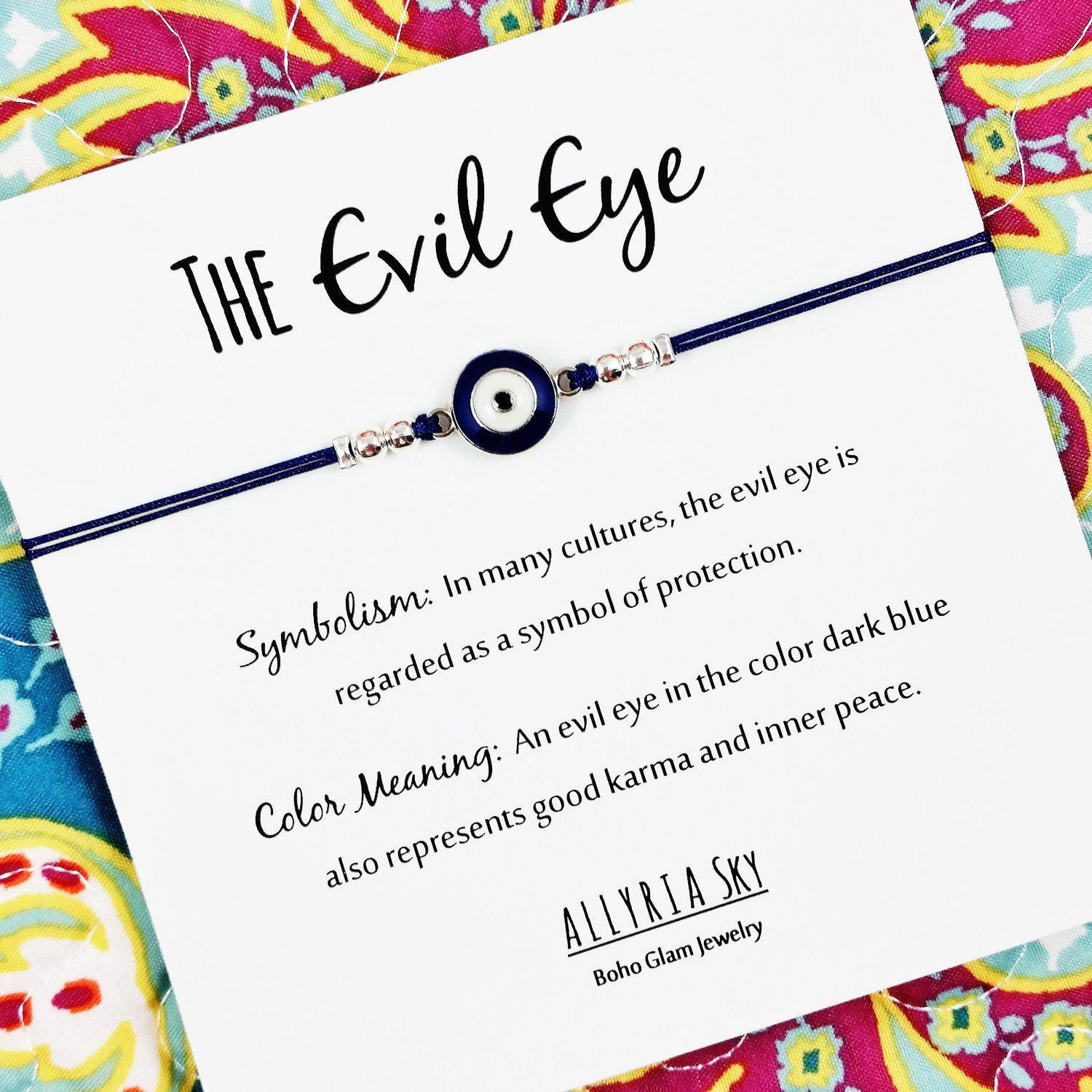
What does the colors of the evil eye mean The Meaning Of Color
Traditionally a circle or round sphere, it is dark blue with the shape of an eye in the middle. Stroll through the grand bazaar of Istanbul and you will lose count of the number of times you see it. Visit panoramic viewpoint in Cappadocia and they hang off trees providing many perfect photo opportunities. But do the Turks still use them?
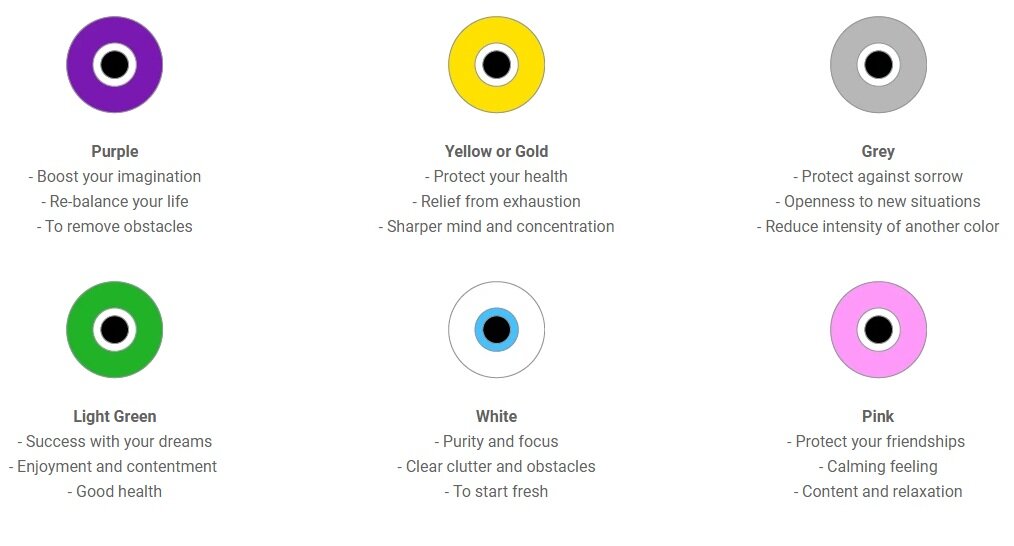
Whats The Story Behind Evil Eye Mati Jewelry Mean A Well Known Part Images and Photos finder
This belief in the evil eye is extremely old, and its origin is obscure and buried in antiquity. According to The Fabric of Life: Cultural Transformations in Turkish Society, the evil eye originated within the cultures of the Near East during the Neolithic period around 7000-3000 B.C.E. and spread throughout the ancient Mediterranean world and beyond.

Pin on magic
Curious about the Turkish Evil Eye? Dive into its history, meaning, and benefits. Elevate your style and spiritual protection. Read more.

Witchcraft Spell Books, Witch Spell Book, Green Witchcraft, Spiritual Symbols, Spiritual
A Nazar Boncuk or bonğucu (pronounced bonjou - the plural) means "eye" glass beads. Nazar is an Arabic word, meaning to see, and over the centuries the Turks have adapted the word to eye. Boncuk or bead is how most of the evil eyes are made.
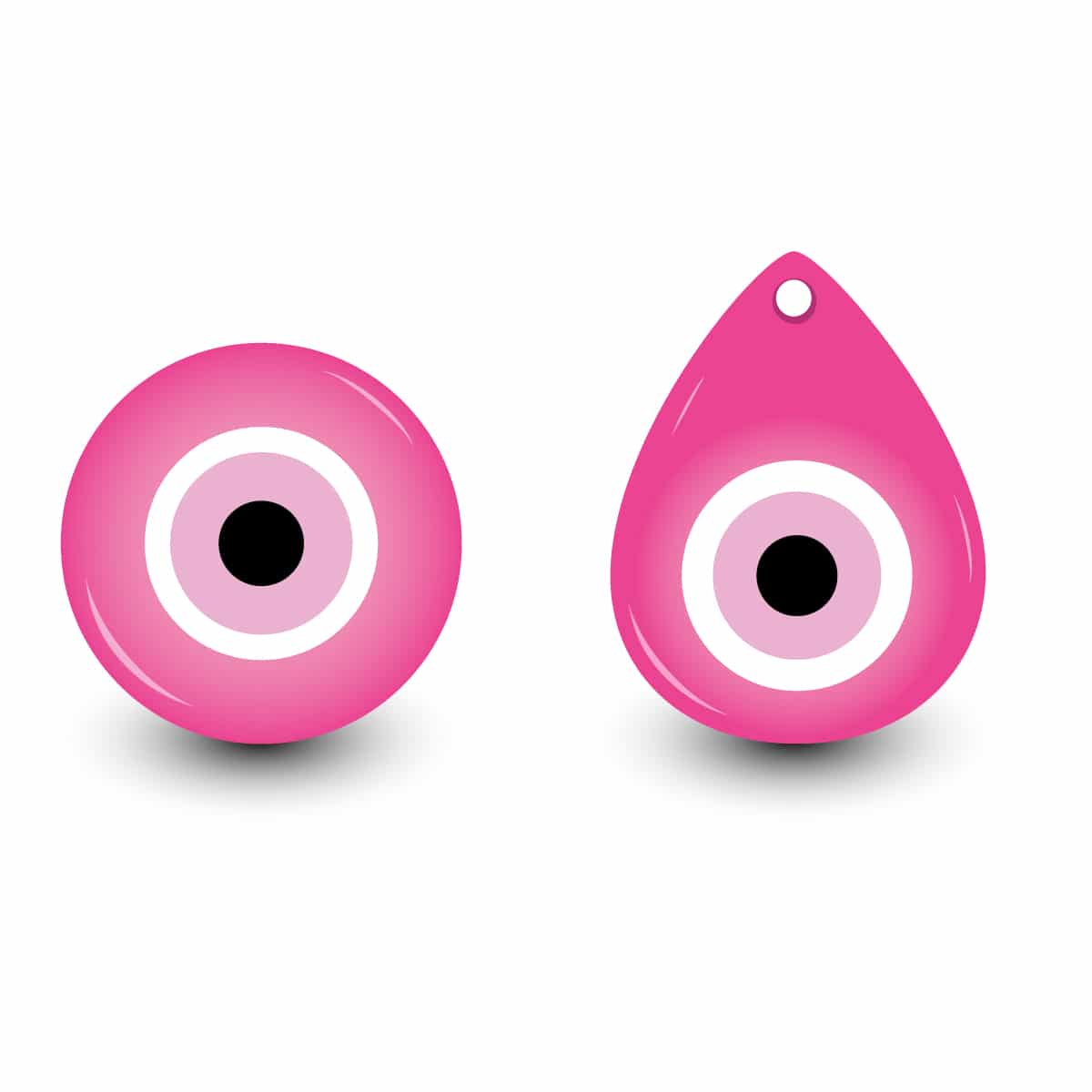
Evil Eye Meaning Behind the Origin of Evil Eye Symbol FARUZO
The meaning is clear in the name. Not that the actual item is evil, but folklore promotes it as something to ward off the gaze of misfortune, jealousy, envy, negative energy such as hate, and spite. Some believe they are talismans, which ward off a curse and bring blessings and positive energy at the same time.
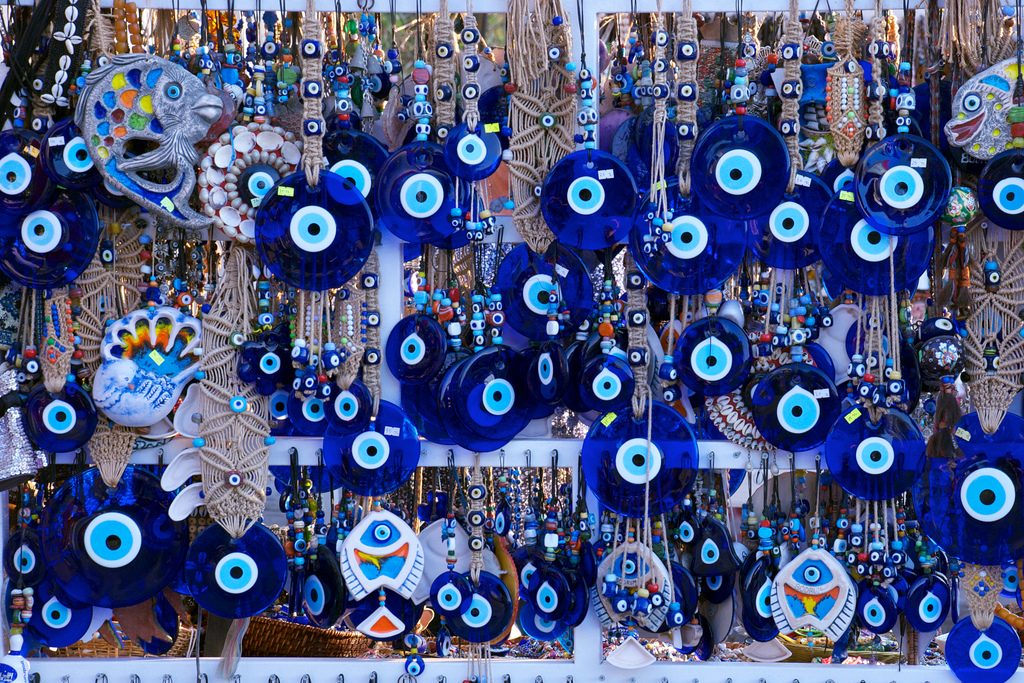
The Evil Eye in Greece Fly Me To The Moon Travel
Evil Eye jewellery has long been a significant part of Turkish culture and holds a deep symbolic meaning. These distinctive pieces feature an eye-shaped design believed to possess protective and warding properties against the "evil eye." In this article, we will delve into the origin of Evil Eye jewellery, its symbolis
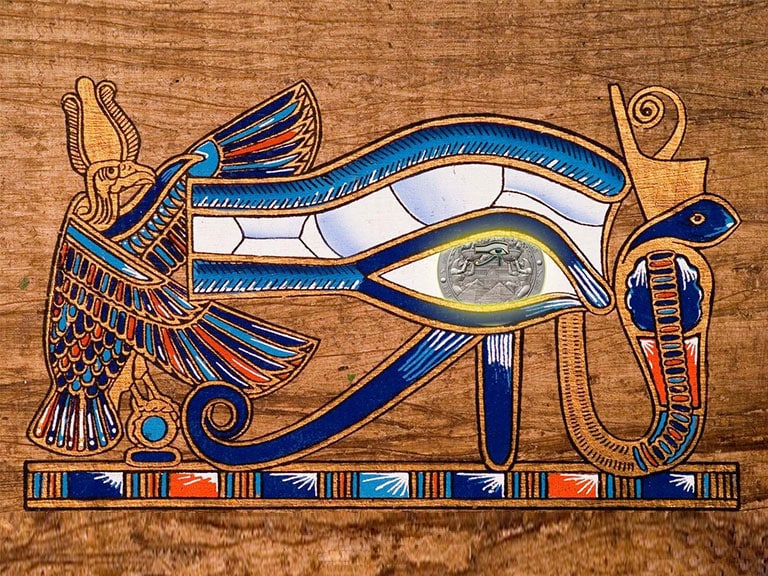
The History and the Meaning of the Turkish Evil Eye
Introduction to the Evil Eye. The evil eye, known as "Nazar" in Turkish, is a superstitious belief that is prevalent in many cultures, including those in Turkey. It is believed that certain people have the power to inflict harm on others with just a malevolent glance, and the evil eye is used as a protective talisman to ward off this.

The Meaning of Turkish Evil Eye HeyTripster
In Turkish culture, it is believed that when someone compliments you or admires your possessions, it can inadvertently attract the evil eye, bringing negative energy or a curse that can harm you or your possessions. For this reason, people use various phrases and words as a form of protection against the evil eye. "Maşallah"

evil eye symbol greek turkish arab talisman classic round sticker Zazzle Ilustración de ojo
If you translate it, it means Nazar charm or sight charm. Turkish evil eye beads, same as in Greece, are sold everywhere. Marketplaces, you name it. How did the Evil Eye belief Start in Turkey? The history of the evil eye in Turkey started at around the same time the Greek belief took shape, maybe even older.